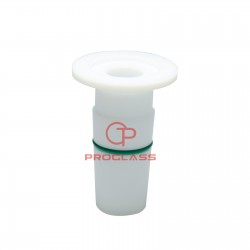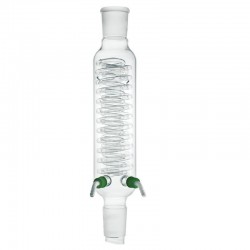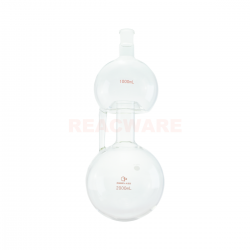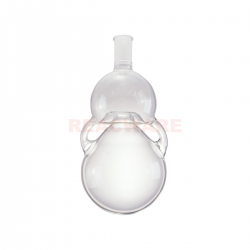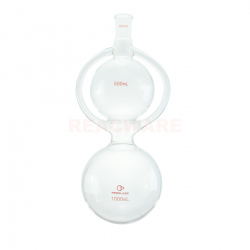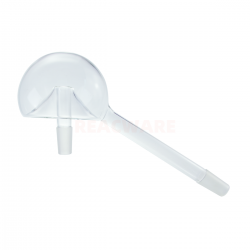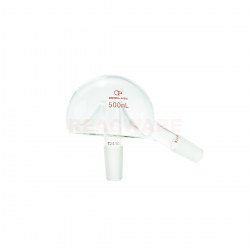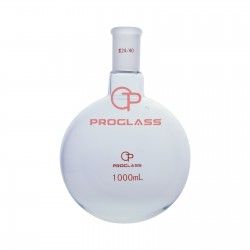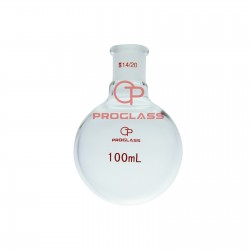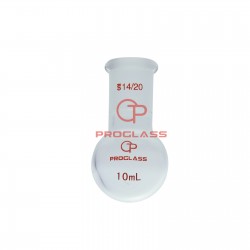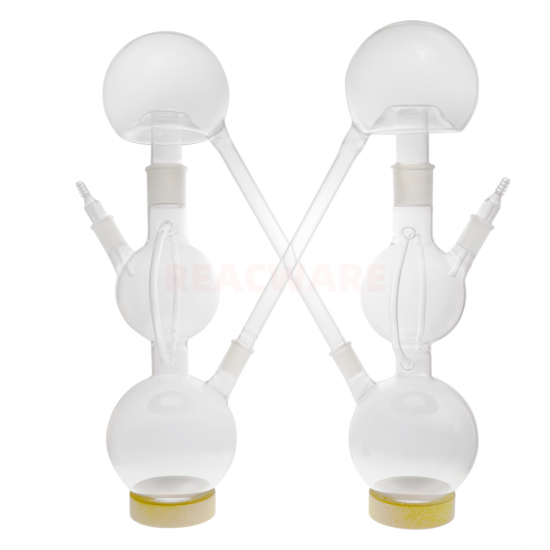
Double Pelican Distillation Kit
Made especially for members of the Crucible Catalog, this unique distilling apparatus
is a modern rendition of one of the Medieval alchemists' favorite pieces of labware --
the famous "Pelican." The Pelican is a circulatory distillation vessel with two side-
arms feeding condensed vapors back into the body. It resembles a pelican pecking at
its breast to feed its hatchlings with its own blood, and thus is a symbol of the
sacrifice the original solution goes through to give up its essence in the experiment.
The alchemist believed that compounds could be created in the Pelican that no other
apparatus could produce. Unit consists of lower Pelican and upper alembic or
condensing vessel.
Laboratory flasks are vessels (containers) which fall into the category of laboratory
equipment known as glassware. In laboratory and other scientific settings, they are
usually referred to simply as flasks. Flasks come in a number of shapes and a wide
range of sizes, but a common distinguishing aspect in their shapes is a wider vessel
"body" and one (or sometimes more) narrower tubular sections at the top called
necks which have an opening at the top. Laboratory flask sizes are specified by the
volume they can hold, typically in metric units such as milliliters (mL or ml) or liters
(L or l). Laboratory flasks have traditionally been made of glass
Be Made From G3.3 Borosilicate Glass
Annealing Point ------560℃
Linear Coefficient of Expansion------ 32×10-7/℃
Softening Point------820℃
If you need any Customized laboratory glassware or the instrument,
Please contact with us
Be Made From G3.3 Borosilicate Glass
Annealing Point ------560℃
Linear Coefficient of Expansion------ 32×10-7/℃
Softening Point------820℃
- Stock: In Stock
- Model: 1062-1011-00




